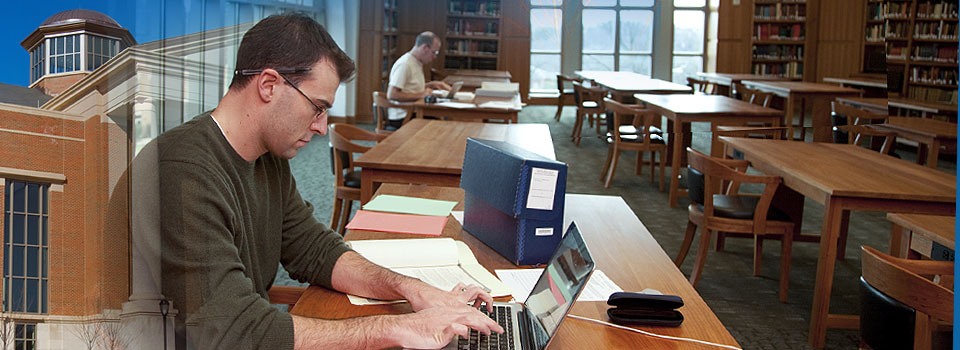The University of Georgia has opened the doors to a new state-of-the-art building for its special collections libraries, housing the Hargrett Rare Book and Manuscript Library, the Richard B. Russell Library for Political Research and Studies and the Walter J. Brown Media Archives and the Peabody Awards Collection.
“We are exhilarated to reach completion of this outstanding new facility designed for the purpose of growing, caring for and sharing the university’s most distinguished collections,” said P. Toby Graham, deputy university librarian and director of the Hargrett Library. “After years of planning and fundraising, we welcome students, researchers and the general public to engage with our collections in the Russell Building’s research rooms, exhibition halls, classrooms and through public events.”
History of the special collections libraries…
UGA’s first special collections department was established in 1953 with John Wyatt Bonner as its director. In the years since, the original collection-now the Hargrett Rare Book and Manuscript Library-grew, and the Richard B. Russell Library for Political Research and Studies and the Walter J. Brown Media Archives and the Peabody Awards Collection were established in 1974 and 1995, respectively. Today, all three departments work together to document the history and culture of Georgia as a state and as it relates to the nation and the world.
About the libraries…
Hargrett Rare Book and Manuscript Library – A leading repository on Georgia history and culture, the Hargrett Rare Books and Manuscript Library holds 200,000 volumes in its rare book and Georgiana collections, six million pages of historical manuscripts and photographs, along with maps, broadsides, and UGA archives and records. Other areas of emphasis include performing arts and natural history. Holdings date from the 15th century to the present.
Russell Library – Housing more than 300 collections from politicians, political parties, public policy organizations, federal and state appointees, and political observers and activists from modern Georgia, the Russell Library is both deep and varied. The collections provide significant documentation of the broad spectrum of political activities of modern Georgia through correspondence, speeches, drafts of legislation, domestic and foreign policy papers, polling data, campaign materials, sound recordings, electronic records, photographs, film, artifacts and oral history. The collections also document the global relationships and interests formed by Georgians through political action, foreign service, trade and other activities.
Walter J. Brown Media Archives and Peabody Awards Collection – Preserving more than 200,000 holdings, the Walter J. Brown Media Archives and the Peabody Awards Collection archives film, video, audiotape, transcription disks and other recording formats dating from the 1920s to the present. The mission of the library is to preserve, protect and provide access to the moving image and sound materials that reflect the collective memory of broadcasting and the history of the state of Georgia and its people. This is the third largest broadcast media archive in the country behind only UCLA and the Library of Congress.
New home for the special collections…
Construction on the site, located near historic North Campus in a triangular tract bounded by South Hull Street, Florida Avenue and Waddell Street, began in January 2010. One third of the cost of the 115,000 square-foot, $46 million structure was paid for from private sources, with an additional $7 million in gifts for program endowments.
Each of the special collection libraries features galleries to display permanent and rotating exhibits. Additionally, classrooms open for public programs allow the libraries to integrate primary source materials into instruction and meeting spaces. The building also includes digitization facilities for paper-based materials, moving images and audio as well as an oral history studio.
A highlight of the building that visitors will not see is a 30,000-square-foot Harvard-model high-density storage facility constructed largely below ground level. This type of storage model is generally used for off-site shelving facilities, making UGA’s special collections vault unique in its incorporation of high-density storage into an actual library. Items are retrieved using a manned, motorized order picker to reach the 30-foot-high shelves.
The structure is named for the late Sen. Richard B. Russell Jr., who served as the U.S. senator from Georgia from 1933-71. A native of Barrow County and a graduate of UGA in 1918, Sen. Russell served in the Georgia House of Representatives beginning in 1920. He was elected speaker from 1927-31 and then served as governor from 1931-33 before being elected to the U.S. Senate. Russell’s career in the Washington, D.C., included work on the Armed Forces Committee and the Appropriations Committee, two posts that he used to secure more than 40 research and military facilities in the state, thus ensuring economic growth for Georgia during his lifetime and well into the 21st century.
Dedication Ceremony for the Richard B. Russell Building Special Collections Libraries
Friday, Feb. 17, 11 a.m., front lawn
Speakers
Michael F. Adams, UGA President
William Gray Potter, UGA Librarian and Associate Provost
Hank Huckaby, Chancellor, University System of Georgia
Larry Walker, Board of Regents
Dink NeSmith, Board of Regents and Chair of the Russell Foundation
Mallory Davis, UGA Student Government Association President
Reception immediately following.
